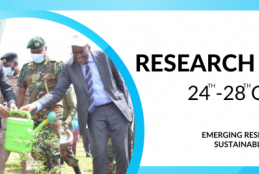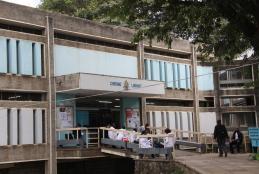Research Week 2022- 5th Annual Conference of the Faculty of Science & Technology
Theme : Emerging Research and Technology for Sustainable Development in Society
October 26-28, 2022
The current agenda and programmes for sustainable development is threatened by many challenges which require new thinking in doing things to ensure societal resilience and sustainable development.


